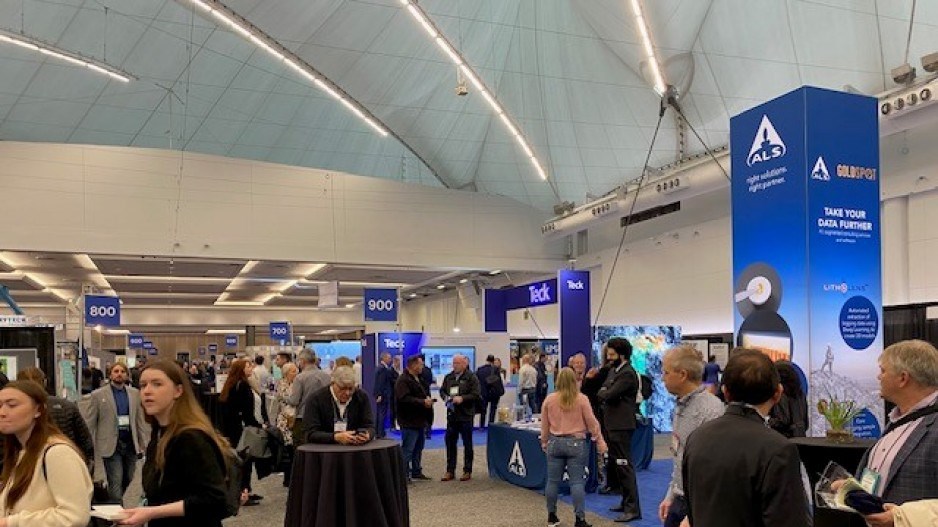The annual Association of Mineral Exploration (AME) Roundup conference kicked off Monday with the announcement of a new B.C. critical minerals strategy.
Premier David Eby was at the opening of the conference to talk about the “phase 1” of the critical minerals strategy.
The new strategy has 11 key “actions, including the establishment of a kind of concierge service for critical minerals – the Critical Minerals Project Advancement Office – and the publication of a B.C. critical minerals atlas.
“The essential parts of this strategy are about ensuring that we have the best information possible, that we’re sharing the information with the sector around critical mineral geotechnical information that we have, that we’re supporting additional technical exploration across the province, (and) that when you are coming to British Columbia to either explore or invest, that you are coming to a jurisdiction where there is a dedicated staff who are prepared to support you from beginning to end," Eby said Monday at the opening of the four-day annual conference.
“We know the system is complex,” Eby said. “Some of it is necessarily so – some of it not necessarily so. So we’re taking out unnecessary complexity.”
Another key action point is to work with First Nations and industry "to identify and advance" infrastructure important to mining, like the North Coast Transmission Line.
Eby said the province wants to work with industry and First Nations to do land use planning "up front" -- before a new mine project is even identified.
"When we do the land use planning up front, it's so much easier to know where the hydro lines go," he said. "It's so much easier to know where the roads go."
As part of that planning, he said it's important to ensure there are opportunities for First Nations to participate and benefit from things like new transmission lines.
Critical minerals are those that have been identified by the federal government as essential to the energy transition -- metals and minerals such as copper, cobalt, nickel and lithium.
Copper is one of the critical minerals already mined in B.C., and there are exploration and development projects underway in B.C. for nickel and rare earths as well.
"As the economy transitions to clean energy, B.C. and the world are going to need critical minerals to build electric vehicles, solar panels, wind turbines, and more," Josie Osborne, minister of Energy Mines and Low Carbon Innovation, said in a press release.
"With rich mineral deposits, B.C. has a generational opportunity to drive growth and create new jobs for people across the entire value chain of critical minerals, from mining to manufacturing to recycling."
In his speech, Eby rolled out the welcome mat to the mining and exploration sector. He acknowledged that B.C. can be a difficult place to due business. Getting new mines approved and built can take a decade or longer. But he pointed to Panama as an example of what can happen in some other mining jurisdictions, where there is less political certainty.
There, the Panamanian government ordered the Cobre copper mine built Canada's First Quantum Minerals (TSX:FM) to be shut down.
“That is a company that invested literally billions in a copper mine and shortly after starting operations it was closed by the Panamanian government," Eby said. "That is not going to happen here. Once you make you investments in British Columbia, then your investments are safe.”
One uncertainty that remains for the exploration sector in B.C. is the Mineral Tenure Act, which the courts have ordered to be updated to better conform with the duty to consult First Nations at the earliest stage of exploration and development.
"We're going to make sure, as we do this work...that it achieves the goals that we have in making sure that it works for industry, that it works for nations and that we're able to move forward," Eby said.




